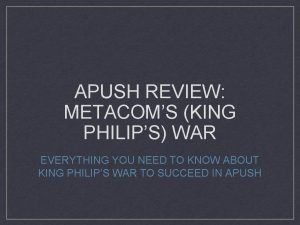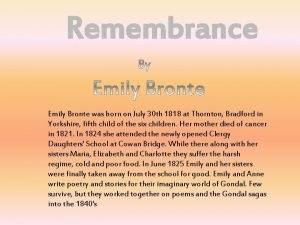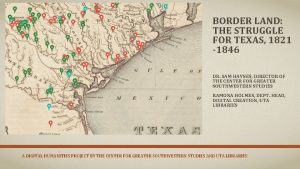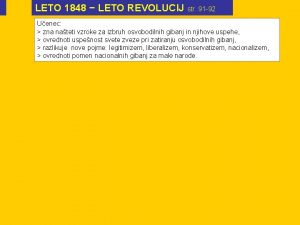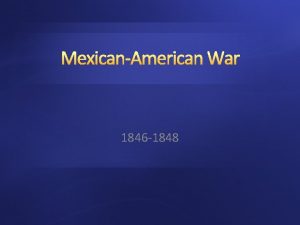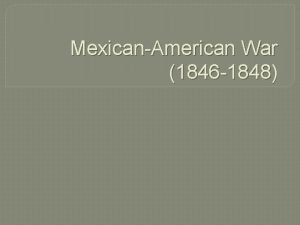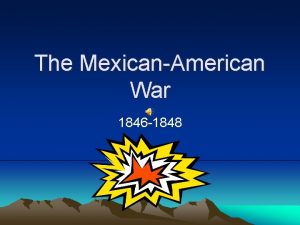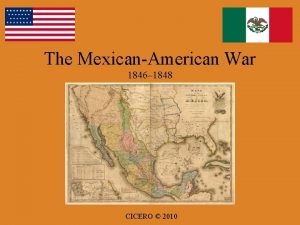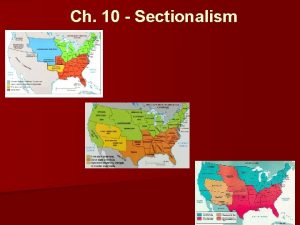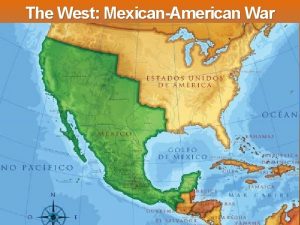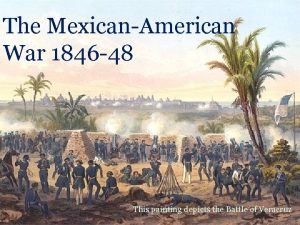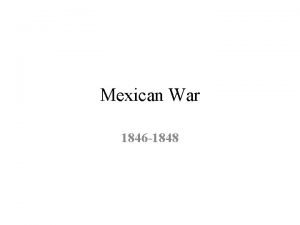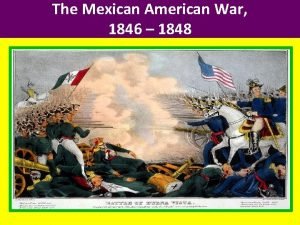Review MEXICANAMERICAN WAR 1846 1848 Significance U S











- Slides: 11

Review MEXICAN-AMERICAN WAR, 1846 -1848 Significance: U. S. gains more territory (Will it be slave or free state? ) Why did it happen? Dispute over territory in Texas; border is the Rio Grande?




SPOT RESOLUTION • James K. Polk was President; Zachary Taylor was a hero of the war (later on President); Lincoln was a U. S. representative • Polk a major supporter of Manifest Destiny • How did the War start? • The U. S. claimed that Mexicans had crossed the disputed Rio Grande border and killed American soldiers • Abraham Lincoln accuses Polk of instigating the war. THIS IS THE SPOT RESOLUTION • What’s the bigger picture? See the worksheet!

BIRTH OF THE REPUBLICAN PARTY • Began in 1856; formed around the issue of slavery and the Kansas. Nebraska Act • Kansas and Nebraska would be two new territories and the slavery question would be answered through popular sovereignty • Gets rid of the Missouri Compromise • The issue of slavery is going to divide many Whigs • Party will lose prominence; Northern Whigs along with Free-Soilers create the Republican party • Conservative Republicans wanted to resurrect the Missouri Compromise; the opposite extreme wanted abolition




Dred Scott v Sandford, 1857 1. Missouri Compromise was unconstitutional and Congress had no right to decide whether states could allow slavery 2. Those who had ancestors that were slaves (African-Americans) were not citizens and therefore had no rights in court; Dred Scott had no right to request his freedom in a federal court 3. Slaves were property and you could not take away property as per the 5 th amendment (life, liberty and property) Case is overturned via 14 th amendment which grants all people born in the United States citizenship and equal rights.

Compromise of 1850 1. California is admitted as a free state 2. Utah and New Mexico territories decide about slavery via popular sovereignty 3. Fugitive Slave Act required people in the free states to help capture and return escaped slaves 4. The sale of slaves is banned in DC but slavery itself may continue there 5. Texas-New Mexico boundary dispute resolved. Texas paid $10 million by federal government
